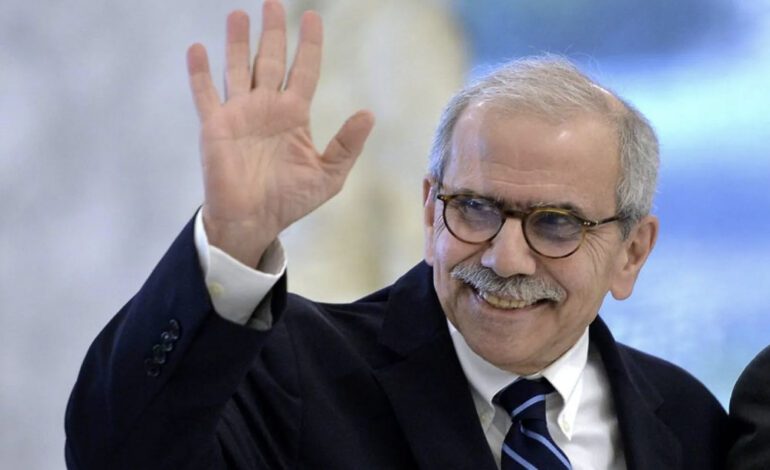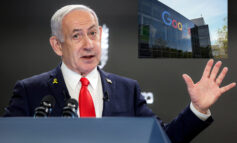Born on December 15, 1953, in Beirut, Nawaf Salam hails from a prominent political family. His father, Abdullah Salam, was one of the founders of Middle East Airlines, Lebanon’s national carrier, and represented the family on its board of directors between 1956 and 1983.
Salam is married to Sahar Baassiri, a journalist and Lebanon’s ambassador to UNESCO. The couple has two sons, Abdullah and Marwan. His grandfather, Salim Ali Salam, was a distinguished figure, serving as mayor of Beirut and a member of the Ottoman Parliament in Istanbul. He was also one of the founders of the Reform Movement in Beirut opposing Turkish policies in the region. Additionally, he was part of the Arab government established by King Faisal bin Al-Hussein and headed its Beirut office, as reported by the Lebanese An-Nahar daily newspaper.
His uncle, Saeb Salam, served as Lebanon’s prime minister four times between 1952 and 1973. Another family member, Tammam Salam, also held the position of prime minister between 2014 and 2016. Salam is well-regarded among Lebanese youth and reformists.
Academic journey
Salam’s academic career is remarkable:
- 1974: Earned a diploma from the School of Advanced Studies in Social Sciences in Paris.
- 1979: Received a PhD in history from Sorbonne University in Paris.
- 1984: Obtained a bachelor’s degree in law from Beirut University.
- 1991: Earned a master’s degree in law from Harvard Law School.
- 1992: Completed a doctorate in political science from the Paris Institute of Political Studies.
Professional career
Legal Field
Salam began his legal career in 1984 as an appellate lawyer and a member of the Beirut Bar Association. He served as an advisor and representative for numerous local and international organizations between 1984–1989 and 1992–2007. From 1989 to 1992, he worked in Boston as a legal representative for several international institutions.
Academic contributions
Salam also pursued an academic path:
- 1979–1981: Lecturer at Sorbonne University, teaching contemporary Middle Eastern history.
- 1981: Visiting fellow at the Weatherhead Center for International Affairs at Harvard University.
- 1985–1989: Lecturer at the American University of Beirut.
- 1992–2007: After returning to Beirut, he joined the Takla Law Office and simultaneously taught international law and relations at the American University of Beirut. He chaired the Department of Political Studies and Public Administration from 2005 to 2007.
Salam has also lectured at renowned institutions such as Harvard Law School, Columbia University’s School of International and Public Affairs, Yale Law School and universities in Freiburg, Boston, Rabat, Cairo and Abu Dhabi.
Public service
- 1999–2002: Elected to the Executive Office of the Economic and Social Council in Lebanon, advising on government economic and social projects.
- 2005: Appointed by the Lebanese Cabinet as a member and rapporteur of the National Electoral Reform Commission. This commission, known as the “Boutros Committee” after its chairman, Fouad Boutros, drafted a new electoral law in 2006, recommending a mixed electoral system with 77 MPs elected through majority voting and 51 through proportional representation.
President of the International Court of Justice (ICJ)
In February 2024, Salam was elected president of the ICJ in The Hague for a three-year term, succeeding American Judge Joan Donoghue. He became the second Arab to lead the ICJ since its establishment in 1945. Salam joined the ICJ in 2018, one of 15 judges elected by the U.N. General Assembly and Security Council.
Distinguished diplomatic career
Salam served in several notable diplomatic roles:
- 2007–2017: Lebanon’s ambassador and permanent representative to the United Nations.
- 2010–2011: President of the U.N. Security Council.
- 2012–2013: Vice president of the 67th General Assembly of the United Nations.
- 2016–2018: Lebanon’s representative to the U.N. Economic and Social Council.
Salam participated in numerous U.N. Security Council field missions to countries like Ethiopia, Sudan, Kenya, Uganda and Afghanistan.
Publications
Salam has authored many works on international law, constitutional law, politics, and history, including:
- “The Possible Reform and the Desired Reform: Research and Articles on the Lebanese Crisis” (1989).
- “Beyond Taif: Articles on State and Reform” (1998).
- “The Taif Agreement: A Critical Reassessment” (2003).
- “Options for Lebanon” (2004, co-authored).
- “Lebanon in the Security Council 2010–2011” (2013).
- “Lebanon Between Yesterday and Tomorrow” (2021, published in Arabic and French).
With his impressive academic, legal, and diplomatic credentials, Dr. Nawaf Salam is seen by many as a highly respected figure and a beacon of hope for Lebanon’s reform and progress at this crucial time.






Leave a Reply